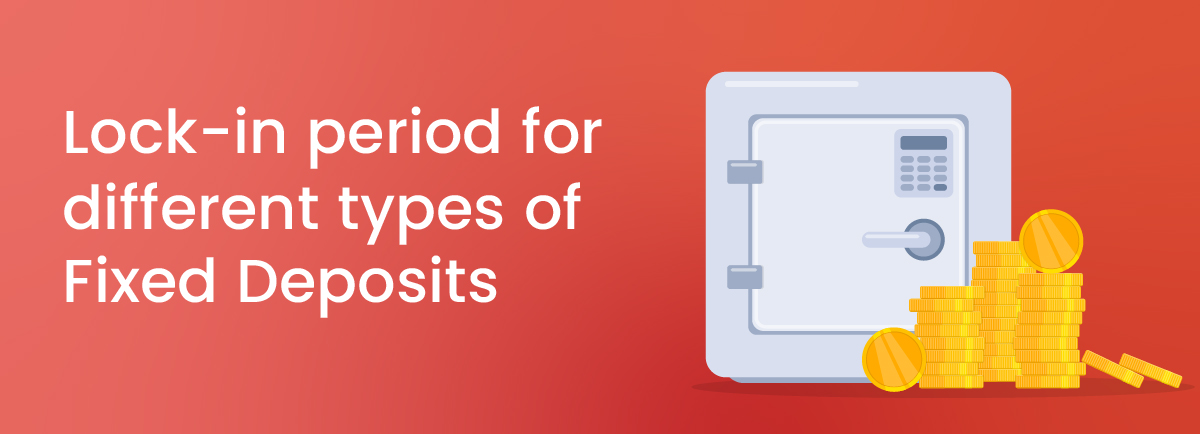
Minimum FD Period Across Various FD Types
01 May 2024 | By INDIE
Fixed Deposits (FDs) have been used for financial planning for many Indians for decades. They offer a reliable avenue for investing money over a fixed period, earning a predetermined interest rate. However, not all FDs are created equal. The minimum FD period requirement is a crucial aspect that often varies across different types of FDs.
If you are new to making investments for a better financial future, understanding the nuances of FDs may seem like deciphering a complex financial puzzle. Yet, grasping the basics is essential for making informed decisions. This blog post will help you understand what a minimum tenure for FD is and how you should select it.
What is the Minimum FD Period?
Simply put, the minimum FD period refers to the duration your money must remain locked in the FD. During this time, you cannot withdraw funds without incurring penalties or forfeiting interest earnings. Essentially, it represents a commitment you make to the financial institution, agreeing to leave your investment untouched for a specified period.
While FDs are a secure investment choice shielded from market fluctuations, it's crucial for you to assess the investment timeline and choose the right FD type that best aligns with your objectives. Without further ado, let’s get into different types of fixed deposits you can choose from.
Types of Fixed Deposits
1. Standard Fixed Deposits
These are basic FDs where you deposit a lump sum for a fixed period, typically seven days to 10 years, at predetermined FD interest rates. Interest accrues over the tenure, and upon maturity, you receive your initial investment along with the accumulated interest.
2. Tax-Saving Fixed Deposits
Designed to offer tax benefits under Section 80C, these FDs come with a lock-in period or minimum FD period of 5 years. While they provide tax deductions up to ₹1.5 lakhs annually, you cannot make withdrawals before maturity. Also, interest income is taxable, and the tax benefits apply only for the initial year.
3. Senior Citizen Fixed Deposits
As the name suggests, these FDs are tailored for individuals aged 60 and above. They offer higher interest rates, typically around 0.5% more than standard FDs. Again, the minimum FD period can vary from seven days to 10 years, depending on the bank's policy.
4. Cumulative Fixed Deposits
With cumulative FDs, you can benefit from interest compounding over the tenure and paid out with the principal upon maturity. These FDs are suitable for long-term investments as they allow maximum interest accumulation.
5. Non-Cumulative Fixed Deposits
Non-cumulative FDs pay out interest regularly at intervals chosen by the investor, such as monthly, quarterly, semi-annually, or annually. They are ideal for those seeking a steady income stream from their investments.
Recommended Read: What is the Monthly Interest Payout in FDs?
6. Flexi-Fixed Deposits
These FDs offer the flexibility of a savings account along with the higher FD interest rates. They are linked to the investor's savings account, allowing easy access to funds while still earning interest. The tenure can vary depending on the bank's terms.
7. NRI Deposit Accounts
NRIs can open FD accounts if they hold an NRO or NRE account in an Indian bank. Interest rates may differ from standard FDs, and the minimum FD tenure typically aligns with regular deposit accounts. These accounts cater to the investment needs of NRIs while adhering to regulatory requirements.
In conclusion, selecting the minimum FD period should align with your financial goals and investment objectives. The flexibility inherent in FD investments allows you to opt for premature withdrawals if needed. However, you must understand the implications of such actions. A premature withdrawal entails withdrawing investment income before the maturity period and incurring penalties as a result. Moreover, the bank is not liable to pay the accrued interest in the case of premature withdrawals before the minimum tenure for FD is completed. Therefore, it's crucial to consider the investment period and potential penalties before making any decisions.
Disclaimer: The information provided in this article is generic and for informational purposes only. It is not a substitute for specific advice in your circumstances. Hence, you are advised to consult your financial advisor before making any financial decision. IndusInd Bank Limited (IBL) does not influence the views of the author in any way. IBL and the author shall not be responsible for any direct/indirect loss or liability incurred by the reader for making any financial decisions based on the contents and information.




